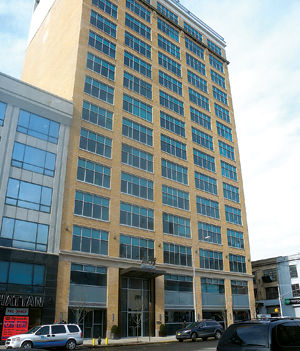INDIAN ARMED FORCES CHIEFS ON OUR RELENTLESS AND FOCUSED PUBLISHING EFFORTS

The insightful articles, inspiring narrations and analytical perspectives presented by the Editorial Team, establish an alluring connect with the reader. My compliments and best wishes to SP Guide Publications.

"Over the past 60 years, the growth of SP Guide Publications has mirrored the rising stature of Indian Navy. Its well-researched and informative magazines on Defence and Aerospace sector have served to shape an educated opinion of our military personnel, policy makers and the public alike. I wish SP's Publication team continued success, fair winds and following seas in all future endeavour!"

Since, its inception in 1964, SP Guide Publications has consistently demonstrated commitment to high-quality journalism in the aerospace and defence sectors, earning a well-deserved reputation as Asia's largest media house in this domain. I wish SP Guide Publications continued success in its pursuit of excellence.
- Indian Air Force Aims for Full Indigenous Inventory by 2047 — Air Chief Marshal A.P. Singh
- General Upendra Dwivedi takes over as the Chief of the Army Staff
- Rajnath Singh assumes charge as Defence Minister for the second consecutive term
- Admiral Dinesh K. Tripathi assumes Command of the Indian Navy as 26th Chief of the Naval Staff
- Prime Minister witnesses 'Bharat Shakti' – a Tri-Services Firing and Manoeuvre Exercise in Pokhran, Rajasthan
InterContinental confirms breach at 12 hotels

The InterContinental Hotels Group (IHG), the parent company for thousands of hotels worldwide including Holiday Inn, acknowledged recently that a credit card breach impacted at least a dozen properties.
In a statement, IHG said it found malicious software installed on point of sale servers at restaurants and bars of 12 IHG-managed properties between August and December 2016. The stolen data included information stored on the magnetic stripe on the backs of customer credit and debit cards — the cardholder name, card number, expiry date, and internal verification code.
The company advised that its investigation into other properties in the Americas region is ongoing. Card-stealing cyber thieves have broken into some of the largest hotel chains over the past few years. Hotel brands that have acknowledged card breaches over the last year after prompting by KrebsOnSecurity include Kimpton Hotels, Trump Hotels (twice), Hilton, Mandarin Oriental, and White Lodging (twice). Card breaches also have hit hospitality chains Starwood Hotels and Hyatt.
In many of those incidents, thieves planted malicious software on the point-of-sale devices at restaurants and bars inside of the hotel chains. Point-of-sale based malware has driven most of the credit card breaches over the past two years, including intrusions at Target and Home Depot, as well as breaches at a slew of point-of-sale vendors. The malware usually is installed via hacked remote administration tools. Once the attackers have their malware loaded onto the point-of-sale devices, they can remotely capture data from each card swiped at that cash register.
Thieves can then sell that data to crooks who specialise in encoding the stolen data onto any card with a magnetic stripe, and using the cards to purchase high-priced electronics and gift cards from big-box stores like Target and Best Buy.





